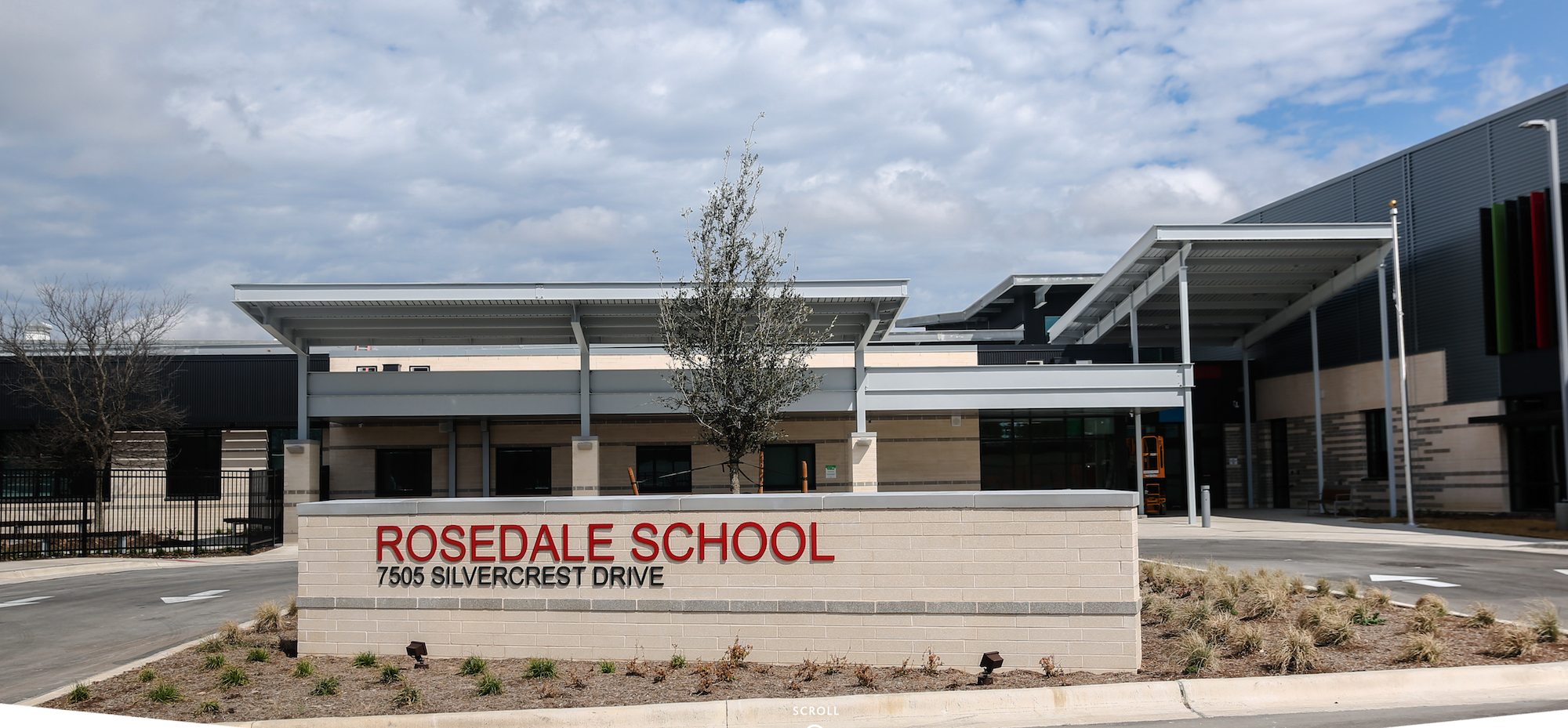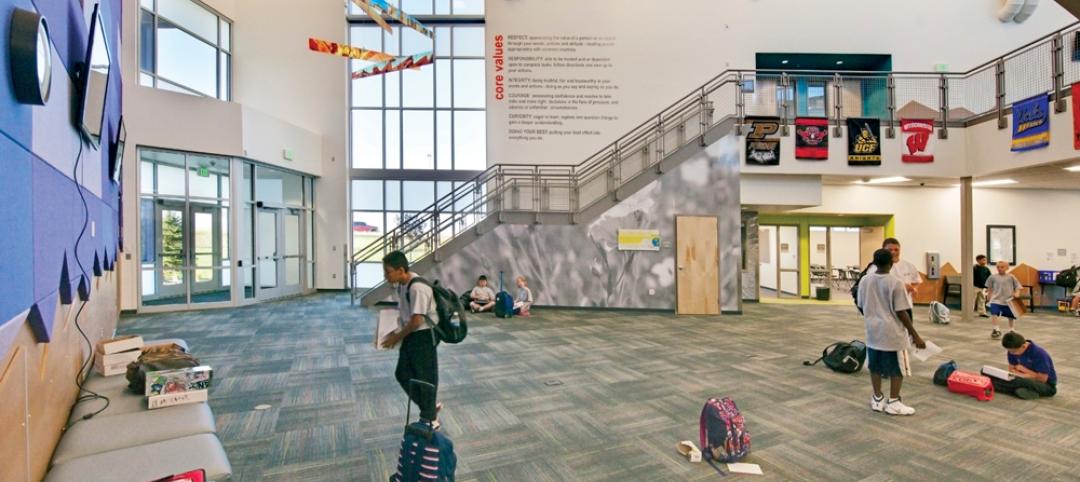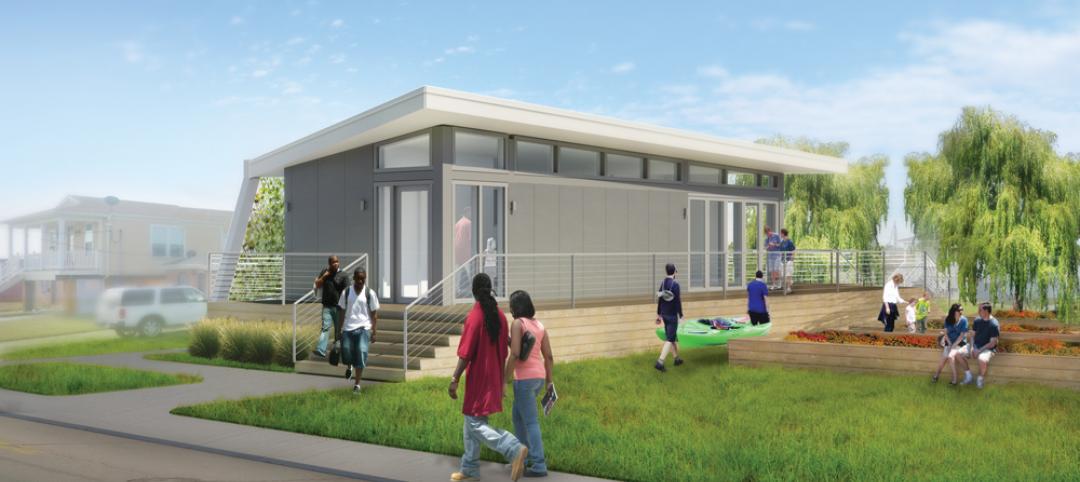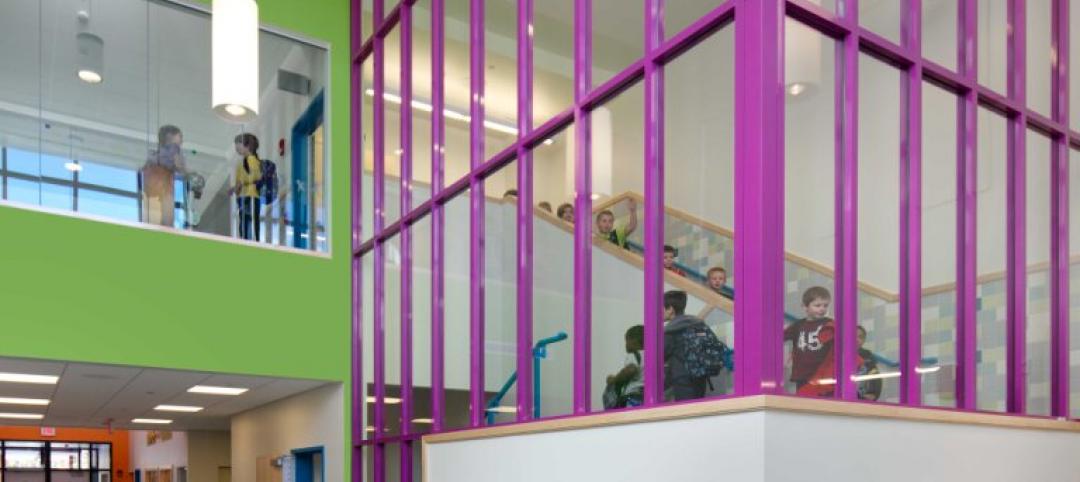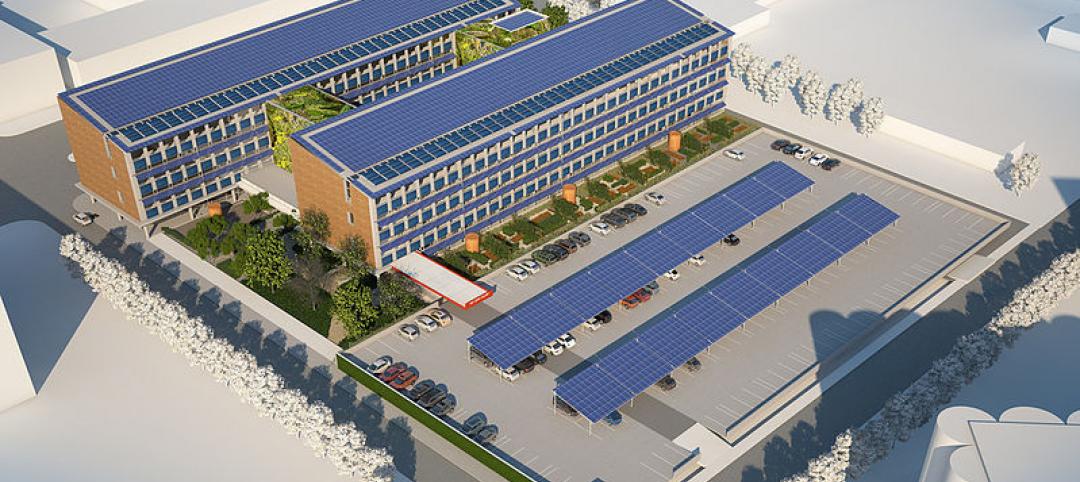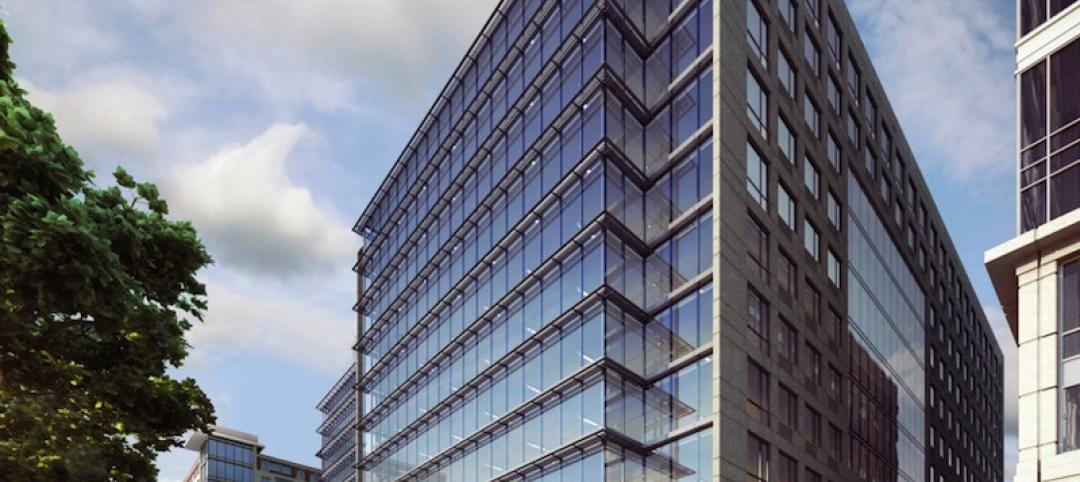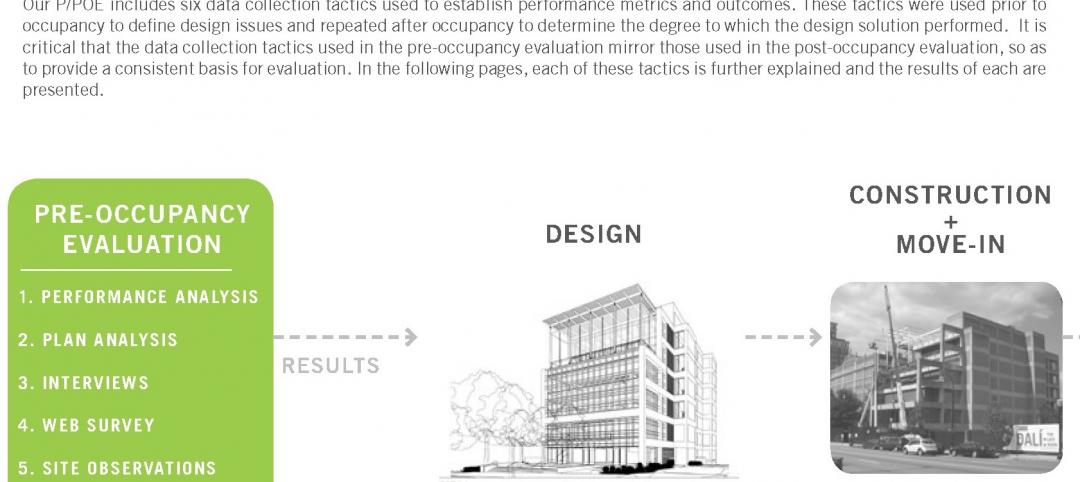In Austin, the Rosedale School has opened for students with special needs aged 3 to 22. The new facility features sensory rooms, fully accessible playgrounds and gardens, community meeting spaces, and an on-site clinic. The school serves 100 learners with special needs from across Austin Independent School District (ISD).
Replacing the original Rosedale Elementary School, which was created in 1988, the new Rosedale School has been organized into learning areas serving specific populations of students: medically fragile, social and behavioral disorders, and transition to life in the community. The design of each area, or neighborhood, takes inspiration from the natural environment—such as the colors and patterns of vegetation, the movement of water, and the shapes of wildlife. These areas, as well as shared community spaces, are connected via a central hub that’s referred to as the living room.
To provide comprehensive assistance for students with diverse physical needs, the school features patient lifts inside the classrooms. These lifts help teachers safely and efficiently move students who need additional physical assistance, and they ensure that every child can participate fully in educational activities.
Throughout the campus, murals of iconic Austin landmarks such as Barton Springs, food truck parks, and Lady Bird Lake connect the school with the larger community. The school’s park remains open to the public after hours.
In partnership with the healthcare center Ascension Seton, the school also has an on-site pediatric clinic that serves both Rosedale students and the larger community. Austin ISD hopes the combination of a school and clinic serving individuals with medical and behavioral needs will serve as a model across the country.
On the Building Team:
Owner: Austin ISD (clinic owned by Dell Children’s Medical Center, part of Ascension Medical Group)
Architect and interior designer: Page Southerland Page
Landscape designer: Asakura Robinson Company
Civil engineer: Garza EMC
Structural engineer: Datum Rios
MEP engineer: CNG Engineering
General contractor: Rogers-O’Brien Construction
Related Stories
| Oct 26, 2014
Study asks: Do green schools improve student performance?
A study by DLR Group and Colorado State University attempts to quantify the student performance benefits of green schools.
| Oct 21, 2014
Check out BD+C's GreenZone Environment Education Classroom debuting this week at Greenbuild
At the conclusion of the show, the modular classroom structure will be moved to a permanent location in New Orleans' Lower 9th Ward, where it will serve as a community center and K-12 classroom.
| Oct 16, 2014
Perkins+Will white paper examines alternatives to flame retardant building materials
The white paper includes a list of 193 flame retardants, including 29 discovered in building and household products, 50 found in the indoor environment, and 33 in human blood, milk, and tissues.
Sponsored | | Oct 16, 2014
Mill Brook Elementary School colors outside the lines with creative fire-rated framing solution
Among the building elements contributing to the success of the elementary school’s public learning areas is a fire-rated stairwell that supports the school’s vision for collaboration. HMFH Architects designed the stairwell to be bright and open, reflecting the playful energy of students. SPONSORED CONTENT
| Oct 15, 2014
Harvard launches ‘design-centric’ center for green buildings and cities
The impetus behind Harvard's Center for Green Buildings and Cities is what the design school’s dean, Mohsen Mostafavi, describes as a “rapidly urbanizing global economy,” in which cities are building new structures “on a massive scale.”
| Oct 12, 2014
AIA 2030 commitment: Five years on, are we any closer to net-zero?
This year marks the fifth anniversary of the American Institute of Architects’ effort to have architecture firms voluntarily pledge net-zero energy design for all their buildings by 2030.
| Oct 9, 2014
Regulations, demand will accelerate revenue from zero energy buildings, according to study
A new study by Navigant Research projects that public- and private-sector efforts to lower the carbon footprint of new and renovated commercial and residential structures will boost the annual revenue generated by commercial and residential zero energy buildings over the next 20 years by 122.5%, to $1.4 trillion.
| Sep 29, 2014
Living Building vs. LEED Platinum: Comparing the first costs and savings
Skanska USA's Steve Clem breaks down the costs and benefits of various ultra-green building standards and practices.
| Sep 24, 2014
Architecture billings see continued strength, led by institutional sector
On the heels of recording its strongest pace of growth since 2007, there continues to be an increasing level of demand for design services signaled in the latest Architecture Billings Index.
| Sep 22, 2014
4 keys to effective post-occupancy evaluations
Perkins+Will's Janice Barnes covers the four steps that designers should take to create POEs that provide design direction and measure design effectiveness.


